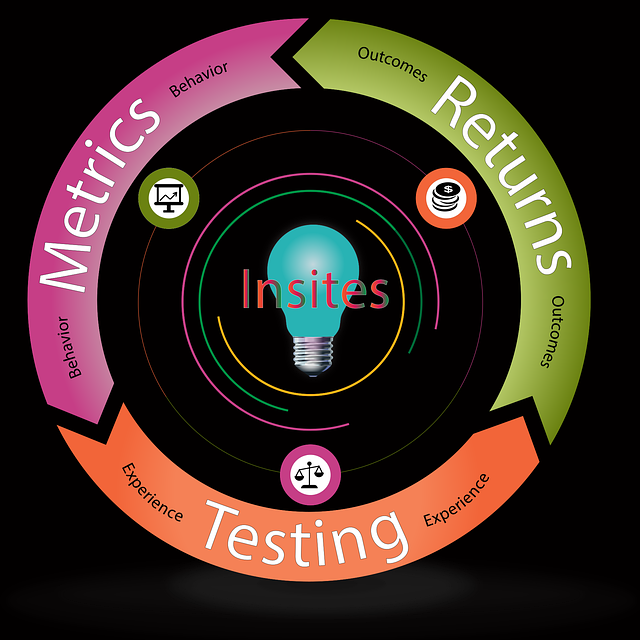Schema Markup SEO is a powerful tool that improves search engine understanding of webpage content, leading to enhanced visibility and click-through rates on Search Engine Results Pages (SERPs). By adding specific tags (Schema Markup or Microdata) to HTML code, developers signal relevant information to search engines, enabling them to display rich snippets—enhanced search results featuring additional website data. JSON-LD, a more efficient method for implementing Schema Markup, optimizes this process for businesses, especially in e-commerce by facilitating detailed product information representation. Effective implementation involves using consistent Schema.org tags for core entities and including relevant attributes in JSON-LD structures, aiming for compelling search result displays and rich snippets optimization. Measuring success through CTRs, direct traffic, organic visibility changes, and user engagement patterns is crucial for maximizing Schema Markup SEO benefits.
In today’s digital landscape, effective search engine optimization (SEO) hinges on structured data implementation. Schema.org emerges as a powerful tool, enabling businesses to enhance search engine understanding and drive rich results. This in-depth guide explores the transformative power of Schema Markup for SEO. We’ll delve into its foundational concepts, dissect benefits for search engines, navigate content-specific vocabularies, uncover best practices, and measure success through performance tracking. By embracing Schema Markup SEO, you harness a game-changer for online visibility.
- Understanding Schema Markup and Its Role in SEO
- The Power of Structured Data for Search Engines
- Implementing Schema.org Vocabulary for Different Content Types
- Best Practices for Effective Schema Markup
- Enhancing Search Results with Rich Snippets and Features
- Measuring Success: Tracking Schema Markup Performance
Understanding Schema Markup and Its Role in SEO

Schema Markup is a powerful tool that plays a pivotal role in enhancing search engine optimization (SEO). It’s a structured data language developed by Schema.org, enabling web developers to mark up content on their websites with meaningful relationships and context. This process involves adding specific tags to HTML code, known as Schema Markup or Microdata, which provides search engines with detailed insights into the content of a webpage. By using Schema, developers can signal to search engine crawlers what kind of information is present on their site, leading to more accurate indexing and improved visibility in search results.
When implemented effectively, Schema Markup allows for the creation of rich snippets—these are enhanced search results that display additional information from a website directly within the search engine results page (SERP). Rich Snippets Optimization benefits businesses by increasing click-through rates as users are provided with more relevant and compelling information at first glance. JSON-LD SEO is another term related to this process, referring to the use of JSON (JavaScript Object Notation) for structuring data, which offers a more efficient way to implement Schema Markup compared to Microdata.
The Power of Structured Data for Search Engines

Structured data plays a pivotal role in enhancing search engine understanding and delivering enhanced results to users. By providing clear, well-defined information about web content, Schema Markup (or Schema.org) enables search engines to interpret and display data more effectively. This, in turn, leads to improved visibility and click-through rates for websites that implement it. Search engines use semantic SEO tags and other semantic SEO features to analyze structured data, which helps in optimizing rich snippets on search engine results pages (SERPs).
Schema Markup for entities like people, organizations, products, and locations allows search engines to present dynamic and visually appealing rich snippets. This not only enriches the user experience but also increases the likelihood of a website being clicked upon. Rich Snippets Optimization is a powerful tool in any SEO strategy, ensuring that websites stand out in a crowded digital landscape and provide valuable, relevant information at a glance.
Implementing Schema.org Vocabulary for Different Content Types

Implementing Schema.org vocabulary is a strategic step in enhancing search engine understanding and optimizing for rich snippets. Different content types, such as articles, products, reviews, and events, each have unique structures and attributes that can be effectively represented using Schema Markup SEO. For instance, articles benefit from structured data that includes publication dates, authors, and summaries, enabling search engines to display rich results with excerpts and author photos. Products require detailed information like pricing, availability, and reviews, which Schema.org facilitates through dedicated vocabulary for e-commerce optimization.
JSON-LD SEO plays a pivotal role in translating Schema Markup into a format that search engines can easily interpret. Microdata vs JSON-LD debate is often resolved by considering the scalability and readability of code. While microdata can be more human-readable, JSON-LD offers better performance and is preferred for complex content structures. Rich Snippets Optimization becomes more accessible with well-structured Schema.org data, as search engines can intelligently extract and display relevant information, attracting users to click through to the source.
Best Practices for Effective Schema Markup

To implement effective Schema Markup, follow these best practices. Firstly, ensure consistency by using well-defined and standardized tags from Schema.org across your entire website. This helps search engines understand your content better and reduces confusion. Secondly, focus on marking up core entities such as products, events, and articles, as they are crucial for enhancing rich results. Including relevant attributes within JSON-LD SEO structures provides additional context, leading to more compelling display in search results.
Additionally, leverage Schema Markup for Entities to represent diverse information accurately. By applying semantic SEO tags appropriately, you enable search engines to interpret your content’s meaning and structure, thereby improving the chances of featured snippets and other rich results. Remember that clear and precise markup, combined with regular updates, is key to maximizing the benefits of Schema Markup SEO in today’s digital landscape.
Enhancing Search Results with Rich Snippets and Features

Search engine results pages (SERPs) have evolved beyond simple text and links, incorporating rich snippets and features that provide users with a more comprehensive overview of search results. These enhancements significantly impact user experience and click-through rates. Schema Markup SEO plays a pivotal role in this transformation by enabling web developers to inject structured data into their websites’ code. This data is then parsed and presented by search engines as rich snippets, featuring star ratings, prices, review excerpts, and more, directly within the SERPs.
Rich Snippets Optimization takes advantage of Schema.org’s vocabulary to mark up content in a way that search engines can easily understand. JSON-LD SEO, for instance, uses JSON-based data structures to convey information about entities, properties, and relationships on a web page. Unlike Microdata, which uses HTML attributes, JSON-LD offers better readability and is more amenable to large-scale implementation. By leveraging these technologies, businesses can ensure that their online presence aligns with search engine expectations, ultimately driving more qualified traffic to their websites.
Measuring Success: Tracking Schema Markup Performance

Measuring the success of Schema Markup implementation is crucial for any SEO strategy. By tracking the performance of your structured data, you gain insights into how search engines interpret and display your content. Key metrics to monitor include click-through rates (CTRs) from rich snippets and direct traffic attributed to enhanced search results. Tools like Google Search Console and third-party analytics platforms offer valuable data on these fronts.
Additionally, paying attention to changes in organic visibility, ranking positions, and user engagement patterns can provide qualitative feedback on Schema Markup SEO effectiveness. Comparing performance before and after implementation of Semantic SEO Tags or transitioning from Microdata to JSON-LD (JSON for Linked Data) can highlight the impact of these strategies, guiding future optimization efforts to maximize JSON-LD SEO benefits.
